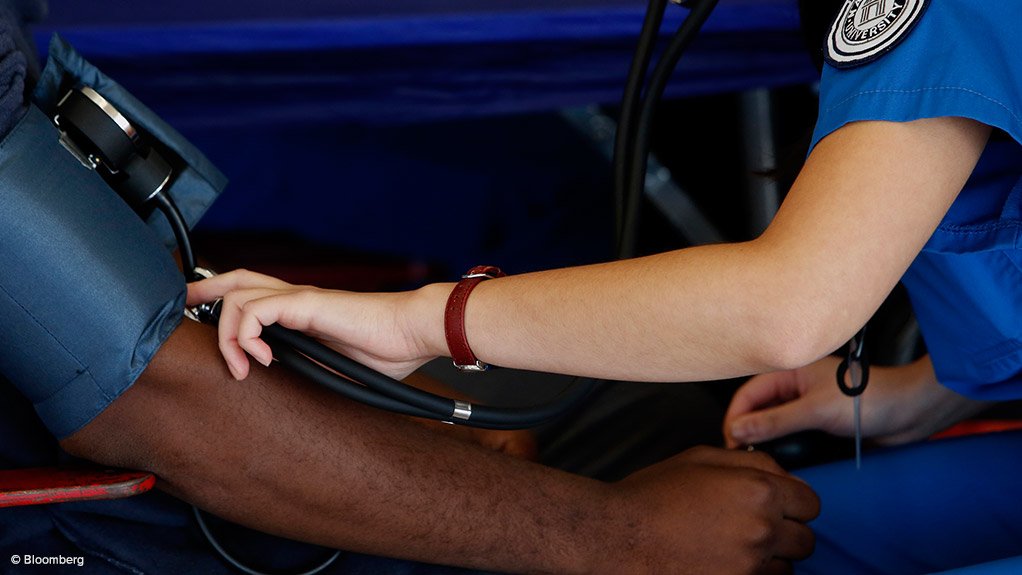/ MEDIA STATEMENT / The content on this page is not written by Polity.org.za, but is supplied by third parties. This content does not constitute news reporting by Polity.org.za.
Nursing in South Africa faces a dual reality: immense demand and significant challenges. Our healthcare system is currently grappling with a shortage of nurses, a situation exacerbated by factors including emigration, an aging workforce and increased healthcare needs. Despite this, nurses continue investing in themselves – in their own education to uplift themselves and advance their careers. Mary Maponya, Fundi’s Executive Head of lending explains how critical this ongoing investment is – for all of us.
Celebrated on 12 May each year – the birthday of nursing pioneer Florence Nightingale – International Nurses’ Day creates an opportunity to reflect on the critical role of nurses in our communities, and the invaluable contribution they make to our healthcare system on a daily basis. “It’s similarly important for us to acknowledge the challenges they face and acknowledge how so many of them are working to overcome these themselves – often through education,” says Maponya.
Perhaps the most pressing reminder of these challenges is the high number of vacant nursing posts across the country. “In 2023 alone, the South African Nursing Council reported that there were over 30,000 national vacancies that needed to be filled: an important reality check for all of us, especially relating to some of our most vulnerable communities,” she notes.
This shortage not only puts the existing workforce under pressure but also compromises the quality and accessibility of healthcare services, particularly in underserved areas. “Nurses are often overburdened and work in under-resourced environments for long hours under very stressful conditions,” Maponya notes. “This can lead to burnout and attrition.
“Despite this however, we continue to see an exceptionally positive level of self-investment in education by nurses themselves – showing their own commitment to shaping their futures and destinies. Our Fundi loan data indicates that 16% of our loan book comprises loans for just over 4 600 nurses, with 40% of this funding being for themselves (as opposed to dependents). The highest investment is being seen in East London and Polokwane, with top institutions where they are studying including UNISA, Mancosa and the Lilitha College of Nursing.”
She notes that this is in line with the key trends currently reshaping the nursing landscape in South Africa – notably that of increased demand for specialist nursing skills: “This is being driven by advancements in medical technology and evolving patient needs. Areas of specialisation such as critical care, oncology, and mental health nursing are spaces where we’re seeing growing demand, creating opportunities for nurses to pursue rewarding career paths and make a significant impact in the lives of their patients.”
As demand for both public and private healthcare services grow, institutions are also recognising the importance of continuous professional development in nursing. “Rapid advancements in healthcare – especially in the private healthcare space – are making ongoing learning and upskilling a non-negotiable. Nurses must be both competent and capable of delivering high-quality care. This is where continuous education is vital. It not only enhances clinical proficiency but also equips nurses with the knowledge and skills to adapt to changes in healthcare delivery, promote evidence-based practice, and address emerging health challenges effectively.”
In light of these trends and challenges, Nurses' Day serves as an important reminder of the need for nurses and healthcare service providers to invest in their careers and personal development. “Pursuing higher education, including advanced degrees or specialist certification opens doors to leadership roles, research opportunities, and greater autonomy in practice.”
With so many nurses invested in their own – and ultimately all of our – futures, South Africans should use this Nurses’ Day to celebrate, acknowledge and thank all of the nurses committed to our care. “Nurses are some of our most unsung heroes and heroines; going above and beyond to touch lives and make a difference every day. They are the remarkable people who often show up when we need them the most. We thank them and wish all of them a happy Nurses’ Day,” Ms Maponya concludes.
Issued by the PR Space
EMAIL THIS ARTICLE SAVE THIS ARTICLE ARTICLE ENQUIRY
To subscribe email subscriptions@creamermedia.co.za or click here
To advertise email advertising@creamermedia.co.za or click here











